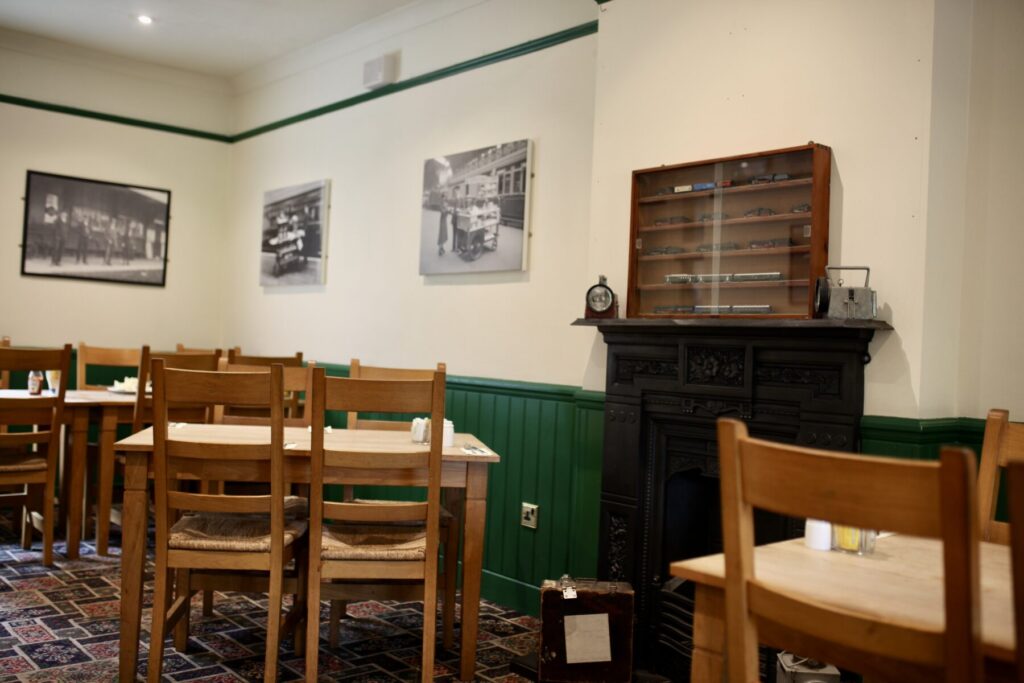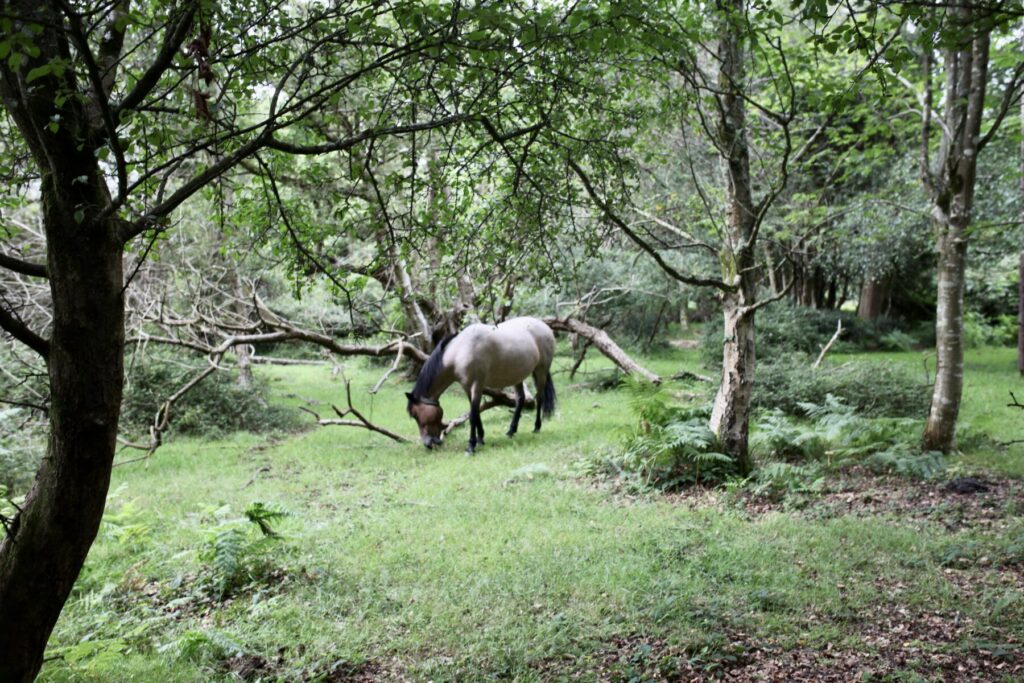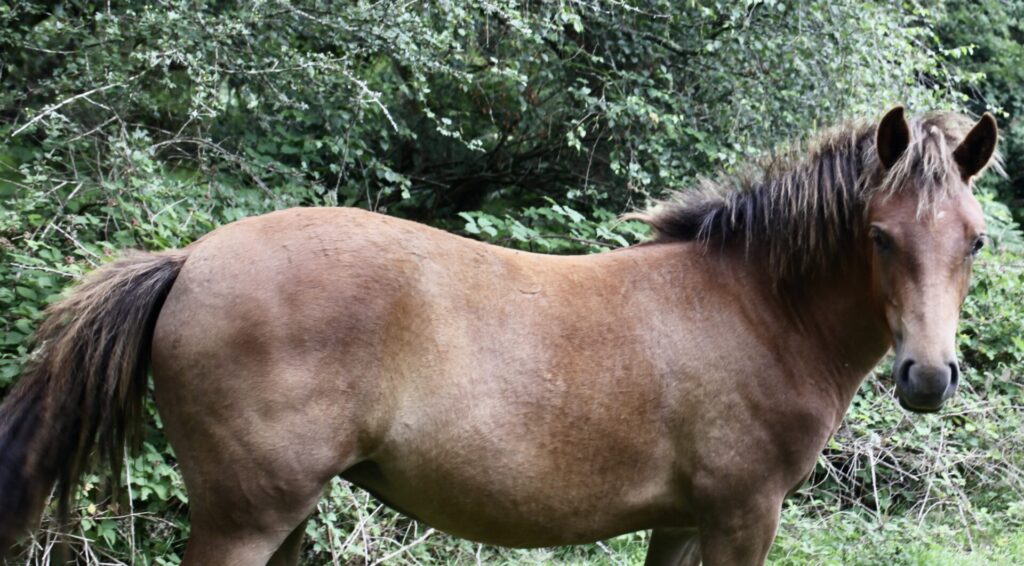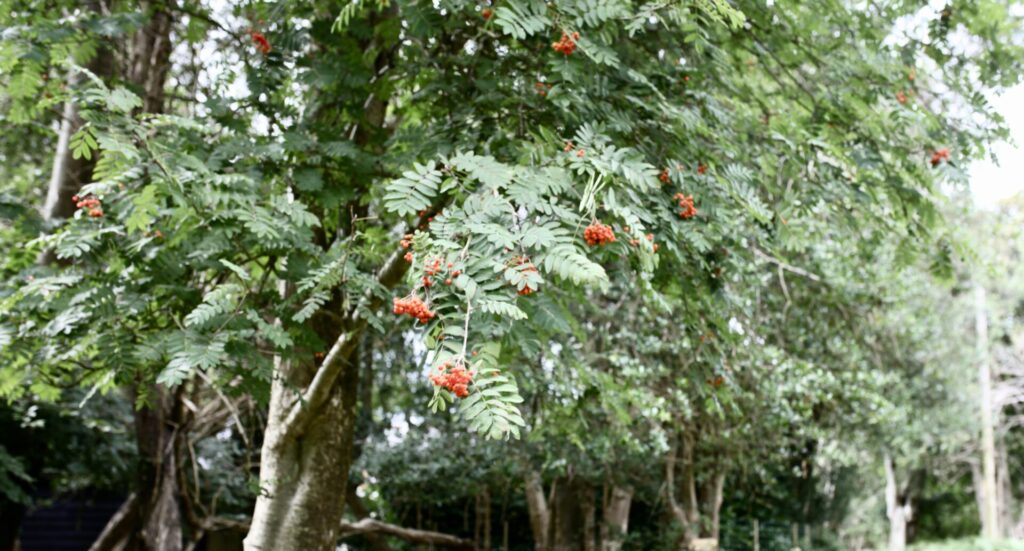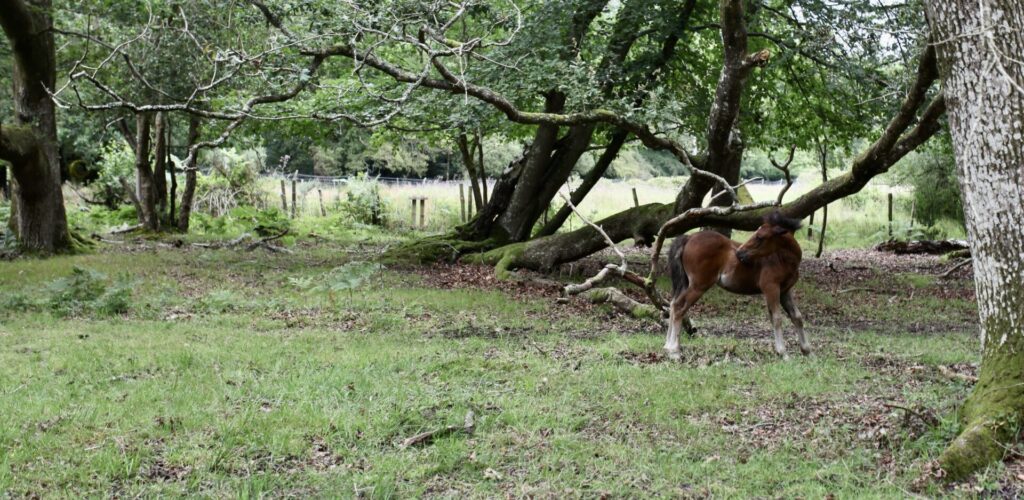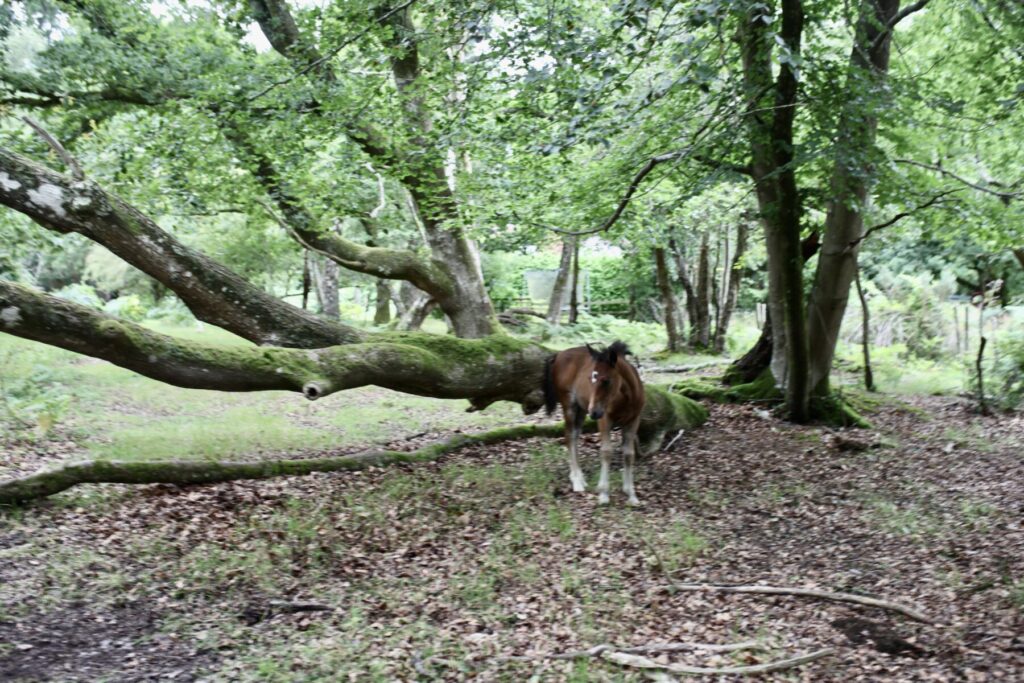The predicted heavy rain arrived on time at 4 p.m. this afternoon while Jackie and I, having purchased provisions at Milford on Sea Co-op and Ferndene Farm Shop, were undertaking a brief forest drive.
Until then, the day dawned bright enough for Dillon and Jackie to transport 17 bags of garden refuse to the Efford Recycling Centre, leaving more for another two trips which have to be booked on line. I will accompany Jackie on this trip tomorrow.
As the light failed Jackie finished weeding the Kitchen Path,
and the scaffolding from our west gable end was taken down.
‘In the New Forest, an agister (/ˈadʒɪstə/) is a local official whose role is to assist the verderers with their duty to manage the free-roaming animals that the New Forest commoners are allowed to release onto the forest.[1] Several thousand semi-wild ponies run free, along with several thousand cattle and lesser numbers of donkeys, sheep and (in autumn) pigs.[2]These are owned by the commoners who pay an annual grazing fee known as the ‘marking fee’.[1] There are currently five New Forest agisters employed by the Court of Verderers, each with responsibility for a specific forest area.[1]
The post of agister is medieval in origin, the name deriving from the word ‘agist’ meaning ‘to take in to graze for payment’.[1]Originally agisters were known as ‘marksmen’, from their role in collecting the marking fees – a role which they still have today.[1]
Agisters spend much of their time out on the forest, often on horseback, checking the condition of the land and of the commoners’ ponies and other stock.[1] They are on call 24 hours a day to deal with problems such as stuck, straying or injured animals.[1] They also watch out for breaches of the verderers’ bylaws and for the presence on the forest of unauthorised animals.[1][3]
Each year between mid August and early November the agisters organise regular ‘pony drifts’, in which the commoners get together to gather in their ponies for an annual welfare check. Rounded-up ponies are recorded and checked by the agisters against the marking fees paid by their owners.[4] Any pony that the owner wishes to sell or to take in for the winter can be removed from the forest at this point.[4] The remaining ponies have their tails clipped in a distinctive manner to identify those normally living in a particular agister’s area, and they are turned back out for another twelve months.[4]‘ (https://en.wikipedia.org/wiki/Agister_(New_Forest)#External_links)
Much of this information appears on previous posts of mine, But this is the simplest source of the whole picture.
I don’t know what happened to this pony lying with distended belly at the side of Forest Road, but someone has obviously reported its demise to the local agister who has posted a notice indicating his awareness of the need for the body’s removal.
As is her wont, Jackie created two cottage pies yesterday, so we all enjoyed the second one for dinner tonight, together with a fresh selection of vegetables, with which she finished the Grenache and I drank more of the Vacqueyras.




















































